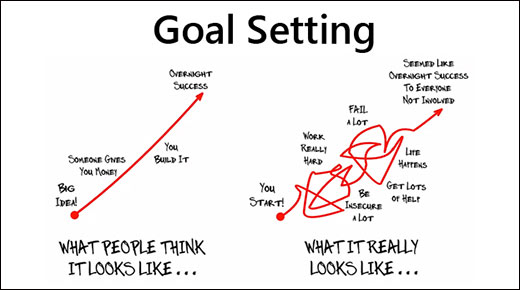This is the next secret in our series, “The Secrets to Success You Don’t Know That You Already Know ” at The Practical Leader. Here we’re going to talk about Secret No. 4: Don’t Set Goals.
|
ADVERTISEMENT |
You’ve probably heard of that famous Yale research study, the one in 1953 that said of the graduating class, only 3 percent wrote down clear goals. Some 20 years later, those 3 percent that wrote down those clear goals had a greater combined net worth than the other 97 percent. The story’s been around for decades; more than a 1,000 articles cite it. Motivational speakers repeat it often, particularly those who are pushing goal setting. So often have they repeated it, that it’s become the mantra how to be successful for the business crowd.
Think of it: The simple task of writing down goals resulted in a career income greater than 97 percent of all Yale graduates that year. There is, however, a problem. It never happened. It did not happen. Even Yale’s library advises that it’s a myth. It’s been passed around, but it never happened.
…

Add new comment